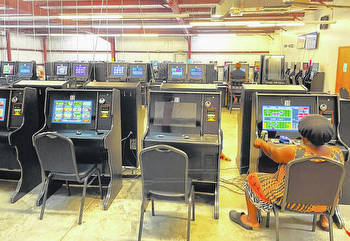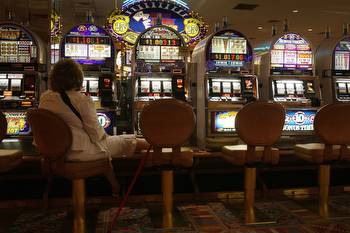Exclusive: New Jersey Regulators Investigate Casino 'Proxy Betting' Scheme

The New Jersey Department of Gaming Enforcement is investigating a potential widespread proxy funding betting scheme concerning online casino players,Bookies.com has learned.
Proxy betting - the practice of funding wagers made by another party – is prohibited by New Jersey regulators.
In this specific instance, Bookies.com has learned that a licensed online casino operator was notified of suspicious activity by a geolocation security site. The operator investigated the information. It subsequently notified regulators after it found a series of PayPal transactions, a significant number of which traced back to a single source – a company that trains and bankrolls online casino players.
Would-be bettors are hired by the casino testing site to rate online games. As part of the hiring process, they are asked to set up bank accounts using their own personal identification to fund the casino wagers. The testing company pays the casino players to test various games and keeps all or part of the winnings. As part of this process, the people working for the testing company often capitalize on sign-up and bonus offers.
Gaming industry officials call this practice “bonus abusing.”
Licensed operators are required by law to report any “suspicious transactions” to state gaming officials in New Jersey. Among those include funds derived from “illegal activities” if it appears to be part of a plan to “evade any law or regulation” governing betting; or has “no business or other apparent lawful purpose”; or the person involved has “no reasonable explanation” for the transaction.
In this case, Bookies.com has learned that regulators told the online operator in New Jersey to freeze the withdrawals of the winnings in question. The examination by regulators of the circumstances surrounding the wagers and their origins is believed to be ongoing.
When reached for comment, a spokesperson from the New Jersey Department of Gaming Enforcement told Bookies.com: “The DGE does not comment (either to confirm or deny) on any investigations.”
Officials from the security site and the online operator targeted both chose not to comment because the situation is ongoing. State law requires license holders to notify regulators of the questionable activity, forward whatever documentation is available, and seek guidance on the next steps. Bookies.com believes that the NJDGE has asked for all the names and account information of the deposits.
“The sad part about this is that the people doing this don’t know that it’s not allowed,” one operator told Bookies.com.
Another New Jersey operator who is not involved in this specific case told Bookies.com that proxy betting is a continuing problem in the Garden State for both land-based and online sportsbooks and casinos.
“This happens quite frequently,” the operator said. “We’re always finding these groups. There’s tons of free money out there. There’s nothing out there that can stop this.”
Here is the statute concerning proxy betting in New Jersey:
Section 13:69N-1.10 - Wagering on behalf of another prohibited
No licensee shall knowingly accept a wager from a person on behalf of any other person. No licensee shall knowingly allow a person to make a wager utilizing the account of another person.
A law enforcement source told Bookies.com that while this specific statute deals only with licensed operators, those funding such bets could run afoul of the law based on other statutes or a combination of them, including those concerning money laundering.
DraftKings Previously Hit With Major Fine
In March of 2022, DraftKings reached a settlement with the New Jersey Attorney General after the book failed to report a series of proxy bets placed from Florida by a VIP bettor named Eric Stevens. The bets included a $2 million two-team parlay that returned $2.1 million. And a pair of parlay wagers that totaled $3 million and would have returned a net of more than $5.5 million but failed to cash. Those bets were booked in October of 2020.































